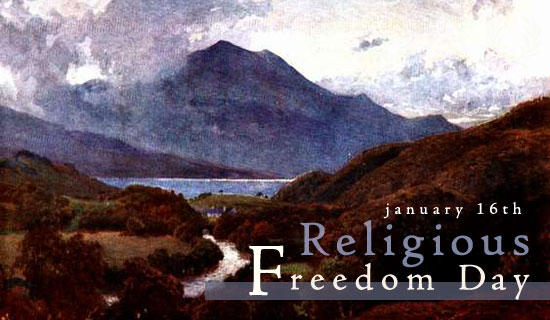From Wallbuilders:
Religious Freedom Day is celebrated in America each year on January 16 — the date of the 1786 passage of Thomas Jefferson’s Virginia Statute of Religious Freedom. That Virginia statute, like similar ones passed in other states, was designed to give broad protections to religious freedoms, which were subsequently enshrined at the federal level in the
First Amendment of the Constitution, which states:Congress shall make no law respecting anestablishment of religion or prohibiting the free exercise thereof.
The Founders viewed the First Amendment and the state measures as fully securing the inalienable rights of conscience — the right to hold specific religious beliefs and then act on and behave in accordance with those beliefs. Of all religious rights, they viewed the protection of religious conscience as the most important.
For example, Thomas Jefferson said:
No provision in our Constitution ought to be dearer to man than that which protects the rights of conscience against the enterprises of the civil authority.
And:
[O]ur rulers can have no authority over such natural rights, only as we have submitted to them. The rights of conscience we never submitted, we could not submit. We are answerable for them to our God.
James Madison similarly declared:
Government is instituted to protect property of every sort . . . Conscience is the most sacred of all property.
Read more: WallBuilders
Click here for more on the topic from American Minute.
Image credit: Barbwire.com.

